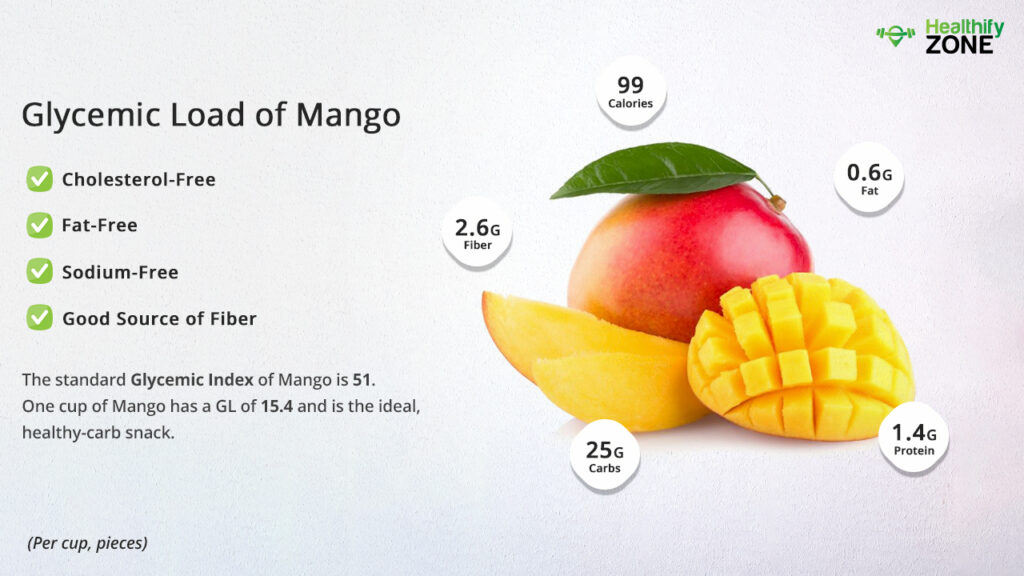Mango is considered to be a low GI food because its GI is 51. The natural sugar found in mangoes may help to raise blood sugar levels. Its fiber and antioxidant content, however, might lessen the overall influence on blood sugar. Around 15 grams of carbohydrates are considered to be one serving of any dish. Sliced mango contains roughly 12.5 g of carbohydrates per 1/2 cup (82.5 g) or a little under one serving of carbohydrates.
Is Mango Safe for Diabetes?
Mangoes are frequently thought of as having natural sugars that can be ingested in any quantity. We’re sorry to break the news to you if you share this opinion, but even fruits like mangoes, when consumed in excessive numbers, can have a significant impact on your blood sugar levels.
Mangoes have additional sugars in their carbs, which have a significant impact on blood glucose levels. It is advised that diabetics eat foods with a low glycemic index. Foods with a GI rating below 55 are digested more slowly, which results in a modest increase in blood sugar levels. Mangoes have a GI of 51; thus, they don’t significantly alter blood sugar levels.
Mangoes have a high fiber content, which can help control blood sugar levels. These fibers have a minor impact on blood glucose levels because they slow down the body’s absorption of sugar.

Is Mango suitable for weight loss?
The tropical fruit known as the mango is indigenous to South-East Asia and the Indian subcontinent. Mangoes come in more than 500 different types, most of which are low in fat, calories, and carbs. Mangoes can be a healthy addition to your diet if you eat them in moderation. Mangoes are allowed on a diet as long as you eat them in moderation and don’t overeat because they are rich in fiber and minerals. Anything you do in excess is not a good idea. Consuming too many mangoes or limiting your diet to them won’t have any positive effects.
What is the Best time to Consume Mango?
Fruit consumption at night is regarded by some as unhealthy for the body. Mangoes and other fruits are thought to contribute to weight gain or other ailments if consumed late at night. However, this is untrue. Mangoes, particularly alphonso mango, should be ingested in sufficient quantities at night. Mangoes are regarded as a healthy snack because they are low in calories and fat. The sweetness will satisfy your hunger, plus they are a healthier alternative.
Mangoes can be consumed without creating any discomfort or health issues for the body at night. They are nutrient-rich and aid in maintaining a healthy body. In addition to satisfying your sweet tooth, the nutrients in each bite will boost your health in numerous ways.
The Bottom Line: The Glycemic Index of Mango is 51.
Mango flesh and peel have phytochemicals known as polyphenols that can suppress adipogenesis or lower the amount of fat your body produces, which causes your fat cells to shrink. This can disrupt and suppress adipogenesis. Polyphenols may also increase fat burning, which would lead to weight loss.
Mangoes provide dietary fiber and contain about 83% water, which helps you feel fuller for longer and reduce appetite. This can assist you in reducing snacking and overeating, which will reduce the number of calories you consume.
Mangoes are a low-calorie fruit, only with 60kcal in 100g of mangoes, while being sweet and having a moderate quantity of carbs and sugar. Therefore, substituting a serving of mangoes for your dessert or unhealthy snack can aid you in consuming fewer calories.